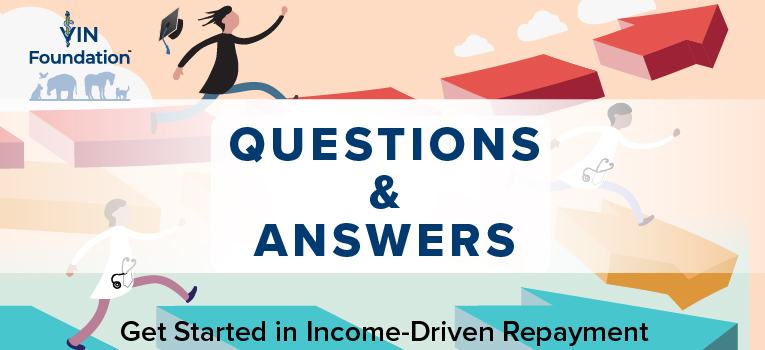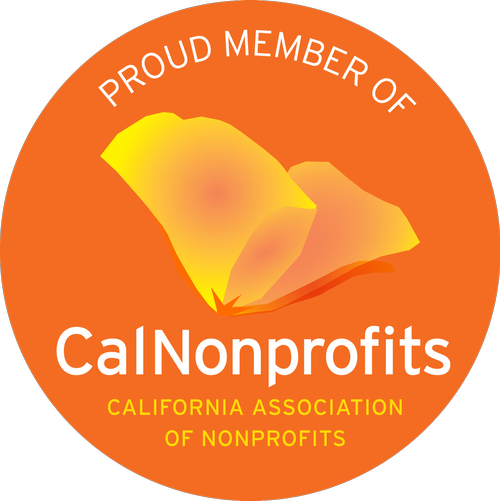Updated for 2023 graduating veterinarians:
There are some new changes and proposals to be aware of as you enter loan repayment.
Here are some common questions about using a Federal Direct Consolidation Loan that we tackled live during the most recent New Veterinary Graduate Student Loan Playbook Webinar.
To consolidate vs not consolidate?
Absolutely start a Federal Direct Consolidation Loan as soon as your loans allow after graduation if:
- you are entering a post-grad academic program before the end of your grace
period - you are starting a PSLF eligible job before the end of your grace period
- you are likely to reach any type of student loan forgiveness
- you have loans from before veterinary school that have logged some repayment time
- you have any non-Direct Loan types including: Health Professions Student Loans, Loans for Disadvantaged Students, Perkins Loans, or Federal Family Education Loans.
- you have little or no unpaid interest balance
What are the benefits of ending the post-graduation grace period?
- Getting your repayment plan started sooner means reaching the end of student loan repayment faster. Most veterinary graduates will start with student loan balances that exceed their incomes, a situation that highly favors using income-driven repayment. The sooner you get started in income-driven repayment, the sooner you’ll reach forgiveness. The sooner you reach forgiveness (or end repayment), the less you’ll pay. Your grace period does not count towards the time needed to reach forgiveness, even if you choose to make payments. Get the forgiveness clock started as soon as possible using a Federal Direct Consolidation loan, ending the remainder of your grace period, and applying for an income-driven repayment plan.
- You can have a $0/mo payment due for the first twelve months of repayment. If you start your Federal Direct Consolidation loan soon after graduation, you can end the remainder of your grace period (select the “Do Not Delay Processing” option) and choose an income-driven repayment plan. If you have filed a tax return recently or not yet start your job, you can secure a $0/mo payment for the first twelve months of income-driven repayment. If you are going to reach forgiveness under income-driven repayment, having a $0/mo payment will not only decrease your total repayment costs but allow you to get a head start on your financial wellness plan.
- Consolidation allows you to choose your loan servicer. Unfortunately, all of the loan servicers are terrible at administering the income-driven repayment plans. Use this unique opportunity to choose Mohela as your loan servicer. Not because they are good, but because they are the official monitor of Public Service Loan Forgiveness (PSLF) progress. Since PSLF requires you to use income-driven repayment to satisfy the requirements, Mohela generally has more experience with income-driven repayment plans. Also, if you end up working towards PSLF, your loans will get moved to Mohela. Move them during the consolidation process as you’re getting started in repayment to help minimize mistakes that often happen with loan servicer transitions during repayment.
How do we know if our student loans are able to be consolidated?
Your Direct Loans, Health Professions Student Loans, Perkins Loans, Loans for Disadvantaged Student, or FFEL program loans need to be in their grace period, deferment, or repayment in order to include them in a Federal Direct Consolidation Loan.
The loans that usually hold up your Direct Consolidation are Direct Unsubsidized Loans and Health Professions Student Loans. Once these loans enter their grace period, you can include them in your post-graduation Direct Consolidation loan.
Can you consolidate after the grace period?
Yes. But, the timing of your Federal Direct Consolidation is important, especially for the 2023 graduating class.
- You will start to accrue interest on all of your unsubsidized loans once the pandemic forbearance benefits end. That is likely to be after August 30, 2023, which is still during the grace period for most veterinary school graduates. If you wait until after the pandemic forbearance period to consolidate, the increased unpaid interest balance will be added to your principal (capitalized) resulting in a higher starting repayment balance. You are charged interest on your principal — the higher your principal, the more interest you will be charged during repayment.
- The Direct Consolidation Loan takes 30-60 days to process. Once processed your first payment will be due 30 days after that. If you wait until after your grace period, there is nearly 9 months of time that you are not in repayment, thus not making qualifying payments towards forgiveness. Better to get the forgiveness clock ticking as soon as possible, just in case you may benefit from student loan forgiveness.
Can you consolidate and waive your grace period if you’re planning to do Public Service Loan Forgiveness (PSLF)?
The sooner you can get most or all of your federal student loans consolidated into a Direct Consolidation Loan, the sooner you can officially start making payments using an income-driven repayment plan, which are 2 of the 3 primary requirements for working towards PSLF. And if you can get the $0/mo payment due for the first 12 months of repayment, you’ll have more of your loans forgiven when you reach PSLF. Zero dollar minimum payments using an income-driven plan count towards forgiveness. Your grace period and deferment do not.
My Perkins Loans, Health Professions Student Loan, and Loans for Disadvantaged Students aren’t listed as eligible under income-driven repayment. Can I consolidate them in order to pay them using PAYE, REPAYE, or IBR?
Can you do Federal Direct Consolidation once you have started payments on an income-driven repayment plan?
You can. However, if you are already in repayment, you should be extremely careful using a Direct Consolidation Loan. Once again, timing for your Federal Direct Consolidation Loan is important.
Since April 2022, the Department of Education opened a one-time forgiveness count adjustment. This allows any/all repayment time and certain deferment/forbearance time to be eligible for forgiveness. Even loans that are included in a Direct Consolidaiton Loan will have their prior repayment time counted as forgiveness-eligible. This opportunity is open through 2023.
The one-time forgiveness count adjustment is the reason why it makes sense for any new graduate to consolidate older loans with any qualifying repayment time with their veterinary school loans. Doing so provides a chance that the oldest loans with the most repayment time will transfer that time as qualifying forgiveness time to your new consolidation loan. If you can start repayment on your consolidation loan with some forgiveness credit already logged, income-driven repayment becomes even more beneficial because you can reach forgiveness even faster.
Should I consolidate my spouse’s federal student loans with mine?
Have more questions? Post a comment below or email [email protected].
Need personalized student debt help? Visit the VIN Foundation Student Debt Help page to receive a “physical exam” and “treatment recommendations” for your student loans.



15 thoughts on “New Grad Student Loan Questions and Answers: Consolidation”
I have a veterinary health professions loan through Ohio State University. I don’t believe that it can be consolidated. It shows that I am in grace period for 1 year. Is this something that I will be able to consolidate later or do I just need to pay this separately as if it were a private loan?
Hi Samantha,
Yes — your veterinary health professions student loan (HPSL) CAN be consolidated into your Federal Direct Consolidation Loan. You may have to add that loan to your consolidation manually, but as long as you have other Direct or FFEL program loans you are including in your federal consolidation, you can (and should) include that veterinary HPSL into your consolidation. We did cover that in the live webinar but I will also post that as a Q&A on this page too 🙂
I am a little late to listening to the webinar and am interested in loan consolidation. I am not sure if I missed the window to consolidate with “no income.” I have signed a contract with a practice, but I have not yet started working and therefore have not earned any money. Can/should I apply for consolidation with no income between now and my start date?
Hi Briana,
Thank you for listening to the webinar. You have not missed the window to consolidate. Even if you can’t get a $0/mo payment for the first 12 months, you should still consolidate, end your grace period, and get into repayment so you lower your starting principal balance and get the clock ticking towards forgiveness (should you need it). When you get to the part about using an income-driven repayment plan, they will ask if you have any current taxable income. If you have not started working, you do not have taxable income. However, if you have a contract that states what your taxable income will be, you can use that as income documentation as well. Good luck and please let us know if you have any additional questions regarding consolidation and loan repayment!
Hello Dr. Bartels,
Recent grad here. I am a big fan of your work and have read most of what you have published. I have a question about consolidation that I cannot find the answer to.
Is there any way to end the grace period other than consolidation? For example, can I just start paying back the loans? If I don’t consolidate and only have multiple direct stafford loans all from one provider, do my payments get spread out between the loans?
Hi Ryan,
Thanks for posting your comment and following the VIN Foundation work on student loans and repayment options! Unfortunately, there is no other way to end your grace period early other than using a Direct Consolidation Loan. If you were to start making payments during your grace period, they will be applied to any unpaid interest first, then principal. However, if you expect to reach forgiveness using an income-driven repayment plan, it would make more sense financially to consolidate your loans and enter income-driven repayment prior to making any payments during your grace period. Please let us know if you have any additional questions on getting your student loan repayment plan started — we’re here to help!
Pingback: Refinancing and Consolidation: Which is Right for Me? - Richer Life DVM
Thank you for the great information! It has been incredibly helpful.
I am a recent grad and I have consolidated my loans. It took quite awhile for the request to be processed, but I finally got my payment schedule and it says my first payment is due Oct 6th. Is there any benefit to making this payment before Oct 6th? I am using PAYE. Any advice would be appreciated! Thank you!
Hi Kayla,
Thank you for the feedback! We’re happy you found the New Grad webinar information helpful 🙂 There is not much benefit to making a payment before it is due. However, I would encourage you to enroll in the autopay function prior to your first payment due date. With autopay, you’ll receive a 0.25% interest rate discount for allowing your loan servicer to pull your minimum monthly payment from a linked account — even if your minimum monthly payment due is $0/month. Since you don’t have to make a payment until Oct 6th, use that time to run some simulations to see if you expect to hit forgiveness under PAYE. If you do, then this is a good time to start your forgiveness savings plan, as well as getting a jump start on other areas of your financial wellness like building your emergency fund, starting your retirement funds, paying down other less flexible sources of debt, etc.
Thank you, Dr. Bartels! I will definitely do what you’ve suggested.
Hi Dr. Bartels! Thank you for this webinar and all the helpful information. I have one private loan with an interest rate of 7.5 % and several federal loans ranging between 5-6 % . Can I consolidate my private loan with my direct loans ? And if I can, should I? Or should I focus on attacking it and paying it off as quickly as possible first?
Hi Amanda,
Great question! First, you cannot include a private loan in a Federal Direct Consolidation Loan. Only federal student loan types are eligible for a federal consolidation loan. Generally speaking, federal student loans are much more flexible than private student loans. When you have both federal and private student loan balances, I would get your federal student loans into an income-driven repayment plan with a payment as low as your income documentation can support. Then I would pay the private student loans off as quickly and reasonably as possible while still working on your other financial and career goals. When you have a bit of credit history built up, you might even consider refinancing the private student loan to see if you can get a better interest rate and repayment term. I would be extremely cautious about refinancing your federal student loans, particularly if your student debt balance exceeds your income. Even with the higher interest rates, your federal student loans have some extremely beneficial provisions that are not worth giving up until/unless your income exceeds your student debt balance. As we discuss in the webinar, use the VIN Foundation Student Loan Repayment Simulator to build a strategy for your federal student loans. I hope that helps!
Hey Tony!
Thanks so much for all this amazing information! I was going to consolidate my loans – waive the deferment, etc. I have been attending school outside of the country and haven’t filed any taxes because I’ve had no income while in university – when i go to consolidation and choose a repayment plan (REPAYE in my case) it cannot continue without a tax return. What should I do in this case?
Thanks in advance
Thanks for commenting, Claire!
>>>when i go to consolidation and choose a repayment plan (REPAYE in my case) it cannot continue without a tax return. What should I do in this case?<<< You have two options: 1) You can file a tax return voluntarily, even though you have no taxable income. After you file, that tax return will be available via the IRS data retrieval tool in the IDR application in about 2 weeks. 2) You can still proceed beyond the tax return option in your IDR application. They just make you visit that IRS page. You can cancel that option on the IRS data retrieval page and you'll return to the IDR application. If you cannot use the "I have no taxable income option," you would then have to provide income documentation directly to your loan servicer. Hope that helps! 🙂
Pingback: How to consolidate your federal student loans - AskField